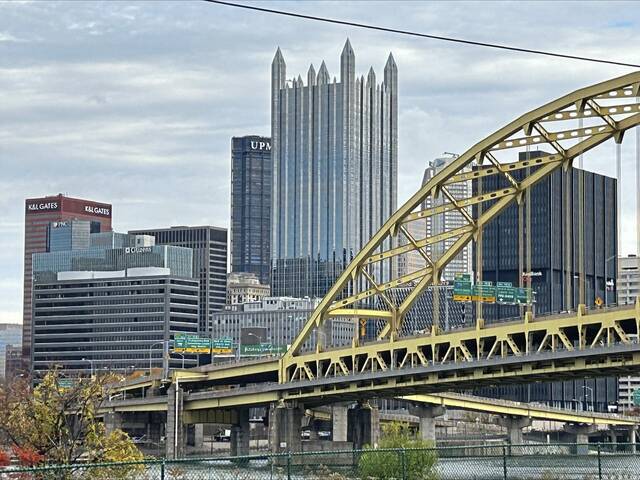https://triblive.com/opinion/panini-a-chowdhury-can-america-afford-to-fear-her-own-cities/
Panini A. Chowdhury: Can America afford to fear her own cities?

Can America truly thrive while its cities are under siege — not only from political neglect like Electoral College and recent gerrymandering attempts, but from a spreading narrative of fear? This isn’t merely a partisan issue. It’s an economic, social and existential one. Our urban centers are the beating heart of national prosperity, innovation and culture. Yet a growing political strategy paints them as chaotic liabilities, threatening to undermine the very foundation of the American experiment.
Yes, cities face real challenges: housing shortages or affordability crises, aging infrastructure, public safety and sanitation concerns. But these problems largely stem from gaps left by federal and state inaction, gaps that cities must fill despite limited tools and shrinking financial support. Municipal governments, being closest to the people, are often the most responsive to daily needs and the most focused on practical solutions. They are not just where America happens; they are how America was built.
Metropolitan regions are not just one piece of the national economy — they are the entire engine. According to the 2025 Metro Economies Report, America’s metro areas generate roughly 90.8% of national GDP and 88.2% of U.S. employment. If treated as a single entity, these regions would rank among the largest economies in the world. In Pennsylvania, Southeastern Pennsylvania, which includes Philadelphia, generates about 37% of the state’s general fund revenue and accounts for nearly 40% of total state economic activity. Allegheny County contributes roughly 13% of state GDP and 18% of total economic output.
In recent years, a disturbing political shift has taken hold. America’s cities are no longer viewed primarily as centers of governance and opportunity but as convenient scapegoats in a manufactured narrative of decline. This strategy goes beyond legitimate policy critique — it attacks the very concept of urban life. Cities are branded as “dangerous,” “chaotic” and “out of control,” fueling a divisive message that urban diversity and density are threats rather than strengths.
This rhetoric is not harmless. It has real consequences. We’ve seen deployments of the National Guard in ways that frame neighborhoods as war zones. We’ve seen federal grants delayed or canceled under the guise of “accountability and compliance.” These symbolic assaults undermine the trust between urban residents and the federal government, making effective governance nearly impossible. The result is a chilling effect: When the national narrative suggests that cities are unsafe or unstable, investment dries up. Businesses hesitate, talent relocates and international partners question America’s stability. For a country that competes globally through the intellectual and financial might of its metro regions, this is a self-inflicted wound.
To defund, militarize or malign our cities is an act of national self-sabotage. Cities are where the synergy of people and diversity transforms into productivity and innovation. They house the universities, hospitals and research institutions that form the nation’s intellectual backbone. They nurture the world-class industries — technology, finance, health care and culture — that keep the United States globally competitive.
Cities are America’s great melting pots, places where millions of people from every background and ambition collide, collaborate and create. They are not simply population centers; they are incubators of progress. When urban leaders are painted as enemies, and city dwellers as “enemy of the nation,” we fracture the American identity itself. America cannot thrive if it fears the very places that make it strong.
We now stand at a crossroads. One path leads toward further division — where fear replaces understanding, and political gain outweighs national progress. The other leads toward renewal, where we recognize cities for what they are: the billboard of American ingenuity and community. The strength of America flows from the heartbeat of its cities — where dreams, labor and culture converge. To let them falter is to dim the light of our shared promise.
If America is to remain a global leader, it must celebrate its cities, not fear them. For a nation founded on life, liberty and the pursuit of happiness, our cities remain the brightest beacons of that enduring ideal.
Panini A. Chowdhury is a professional planner specializing in infrastructure planning. He also serves as a gubernatorial appointee to the Pennsylvania Pedalcycle & Pedestrian Advisory Committee.
Copyright ©2026— Trib Total Media, LLC (TribLIVE.com)
